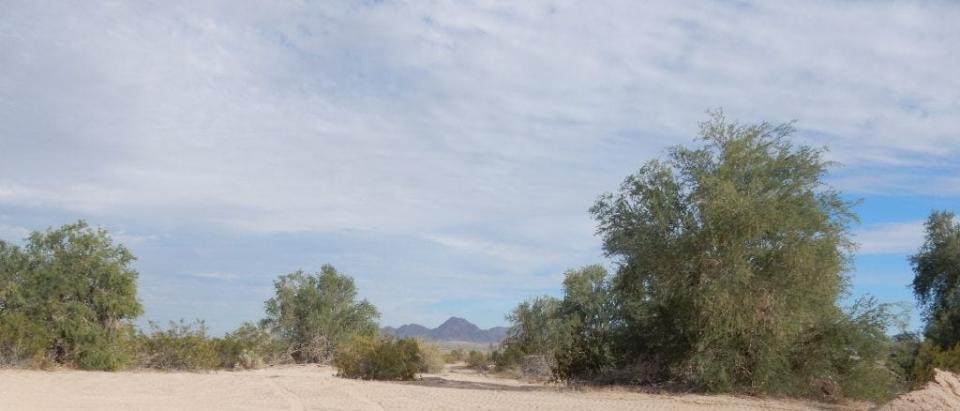Feds give final approval to eastern Riverside County solar, transmission projects
The Bureau of Land Management is moving forward with renewable development in the desert this month, including issuing final construction approval for the Oberon solar project on about 2,600 acres near Interstate 10 in eastern Riverside County, and greenlighting a major transmission line from western Arizona to Blythe, California to help carry more power.
Both actions are part of a push by the Biden Administration to significantly ramp up renewables development in the southwest.
The BLM Palm Springs office on July 13 announced it had authorized a subsidiary of Intersect Power to build the 500 megawatt Oberon renewable energy project, enough to power approximately 146,000 homes and 200 megawatts of battery storage.
“This solar project is the third project approved for full construction under the Desert Renewable Energy Conservation Plan and an example of how public land in California plays a big role in achieving the Biden-Harris administration’s goal to achieve 100 percent carbon-free electricity by 2035,” Karen Mouritsen, BLM California State director, said in a statement. “The BLM is committed to responsible renewable energy development that balances conservation and utilization of public land.”
The Ten West transmission line, approved by BLM in Arizona and announced the next day, authorizes Delaney Colorado River Transmission to begin construction of a 125-mile, 500-kilovolt transmission line that will connect existing substations near Tonopah, Arizona and Blythe.
The federal agency used a streamlined permitting process for the major power line project, though it did make changes to the path in response to public comment, including routing it away from Kofa National Wildlife Refuge and requiring development of a plan by the California office to avoid damage to a small desert plant, Harwood’s eriastrum, also known as Harwood's woollystar, "to the maximum extent practical."
Overall, “approving this new transmission line on our public lands will accelerate our nation’s transition to a clean energy economy by unlocking renewable resources, creating jobs, lowering costs, and boosting local economies,” Interior Secretary Deb Haaland said in a statement.

The Oberon project in particular drew mixed reviews, with many environmental groups and large-scale solar advocates joining Biden administration officials to say such projects are critical to eliminating fossil fuel based energy and slowing climate change. But regional environmentalists are dismayed, saying rare desert washes, woodlands and tortoise habitat will be bulldozed to make way for the panels and battery storage.
The developer took several steps to avoid or make up for harm to ironwood stands and desert tortoise habitat, including pushing the large project back from critical wildlands, but a longtime desert environmentalist said it wasn't enough.
"Specially for Oberon, I still think that project's pretty tragic," said Kevin Emmerich, co-founder of Basin and Range Watch. "That's a very poor location."
Emmerich, based in Beatty, Nevada, has methodically opposed every large solar project in the desert. He says the increase "is just a gigantic assault of these industrial projects on desert habitats and cultural sites."
"Although they did make an attempt to do some good mitigation and avoid some of the larger washes with desert ironwood trees ... they're still going to have to remove a lot of the bigger trees that would shade solar panels."
He and other local environmentalists contend more rooftop solar projects in cities where power is needed should be implemented. Many solar advocates and policy officials say both commercial scale and rooftop projects are needed.
All told, BLM officials said they are currently "processing" 64 clean energy projects proposed on public lands in the western United States. They include solar, wind and geothermal projects, as well as tie-in electric lines "vital to clean energy projects proposed on non-federal land."
Janet Wilson is senior environment reporter for The Desert Sun, and co-authors USA Today's Climate Point newsletter. She can be reached at jwilson@gannett.com or @janetwilson66 on Twitter.
This article originally appeared on Palm Springs Desert Sun: Feds give final OK to desert solar, transmission projects

